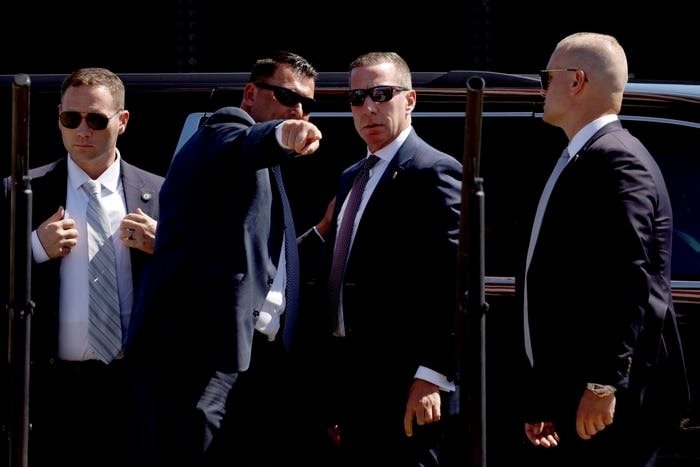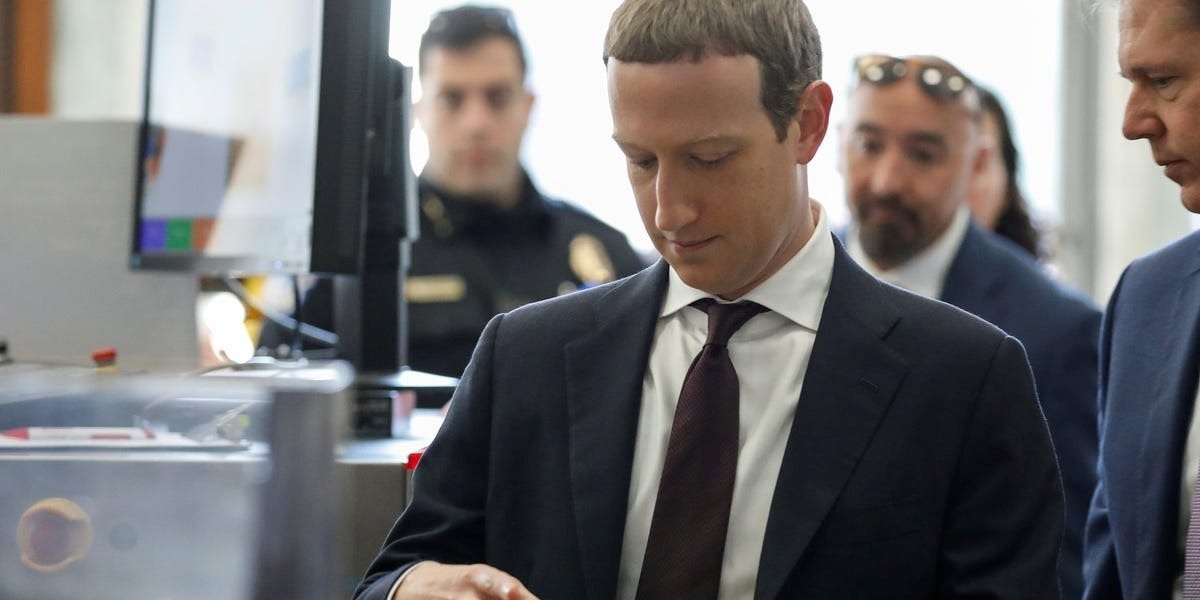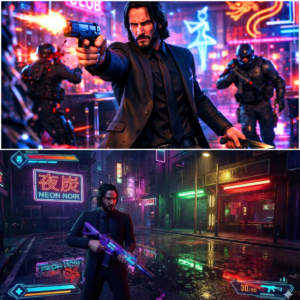In the high-stakes world of tech titans, where fortunes are made and controversies brew, one billionaire stands out not just for his wealth but for the staggering amount spent to keep him safe. Mark Zuckerberg, the CEO and founder of Meta, has taken personal security to a level unmatched in the industry, shelling out a jaw-dropping sum that surpasses the combined security budgets of six other prominent tech CEOs. While his net worth trails far behind Elon Musk’s, Zuckerberg’s security costs in 2024 reached over $27 million—more than 50 times what Tesla reports for its enigmatic leader.

The tech industry, known for its innovation and disruption, is no stranger to the need for robust security. The leaders of these global giants often find themselves in the public eye, facing scrutiny, criticism, and, at times, tangible threats. In 2024, the collective security budgets for the CEOs of 10 major tech companies exceeded $45 million. Yet, Zuckerberg’s expenditure alone accounted for more than half of that total, a figure that climbed from $24 million the previous year. To put this in perspective, Nvidia allocated $3.5 million to protect its CEO Jensen Huang, up from $2.2 million. Amazon spent $1.1 million on Andy Jassy and $1.6 million on Jeff Bezos. Apple, meanwhile, budgeted a modest $1.4 million for Tim Cook, down from $2.4 million the year prior. Alphabet set aside $6.8 million for Sundar Pichai, and Tesla reported a mere $500,000 for Elon Musk—though whispers in the industry suggest Musk’s actual costs may be higher, thanks to his ownership of a private security firm.
What makes Zuckerberg’s security budget so extraordinary? It’s not just about bodyguards or armored cars. Meta’s protection program for its founder is a comprehensive fortress, covering his private residences, family, and travel. As the face of Meta—a company synonymous with social media’s triumphs and controversies—Zuckerberg occupies a unique position. His majority control over the company and his polarizing public persona have made him a lightning rod for criticism, from privacy scandals to political debates. This reality has driven Meta to invest heavily in ensuring his safety, creating a security apparatus that goes beyond standard measures. The program includes advanced cybersecurity defenses, anti-surveillance technology, and protections against sophisticated digital threats like deepfakes, which could manipulate his image or voice in damaging ways.

In contrast, other tech CEOs maintain more modest security arrangements. Jensen Huang, whose global profile has soared as Nvidia dominates the chip industry, has seen his security budget increase, reflecting his rising prominence. Palantir’s Alex Karp, known for his work in data analytics, employs a round-the-clock bodyguard detail. Yet, even when combined, the security budgets for the CEOs of Apple, Nvidia, Amazon, Alphabet, Microsoft, and Palo Alto Networks fall 26% short of Meta’s expenditure on Zuckerberg alone. This disparity raises eyebrows, especially when considering that Zuckerberg’s net worth, estimated at $270 billion, is significantly less than Musk’s $414 billion.
The scale of Zuckerberg’s security measures reflects the unique challenges he faces. Unlike Musk, who thrives on public provocation and operates his own security outfit, Zuckerberg’s public image is tightly intertwined with Meta’s brand. Every decision he makes, from corporate strategy to personal appearances, carries weight for the company’s reputation. This reality has led Meta to adopt an all-encompassing approach, ensuring that no aspect of Zuckerberg’s life is left vulnerable. From bulletproof vehicles to intelligence-gathering teams staffed by former FBI agents and military personnel, the operation is designed to counter physical threats, kidnapping risks, and even assassination attempts. Digital safeguards are equally robust, with measures in place to combat hacking, tracking, and the growing menace of AI-generated deepfakes.

The broader tech industry has taken note of these heightened security needs, particularly after the shocking assassination of UnitedHealthcare’s CEO late last year. That tragedy prompted many companies to overhaul their executive protection policies. Some have limited public exposure of their leaders’ images, while others have invested in fortified home security systems or restricted travel to company-owned private jets. These changes reflect a growing awareness of the risks faced by high-profile executives in an era of intense public scrutiny and technological threats.
Zuckerberg’s astronomical security costs, however, stand in a league of their own. The $27 million price tag is not just a reflection of personal safety concerns but a testament to the unique position he occupies in the tech world. As Meta navigates the complexities of social media regulation, virtual reality ambitions, and global influence, Zuckerberg remains both its greatest asset and its most visible target. His security budget, while staggering, underscores the lengths to which Meta is willing to go to protect its founder.
This disparity in security spending also invites speculation about the broader implications. Is Zuckerberg’s protection worth more than the combined efforts for six other tech giants? Does it reflect genuine threats or an overabundance of caution? Whatever the case, the numbers tell a story of a billionaire whose safety comes at a premium, dwarfing even the most lavish security arrangements of his peers. In a world where wealth and influence collide with public perception, Zuckerberg’s fortress of protection is a stark reminder of the cost of being at the top.





